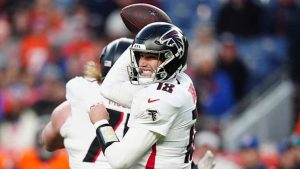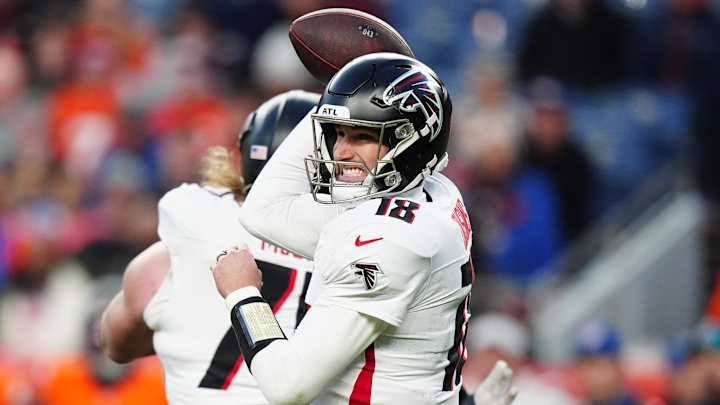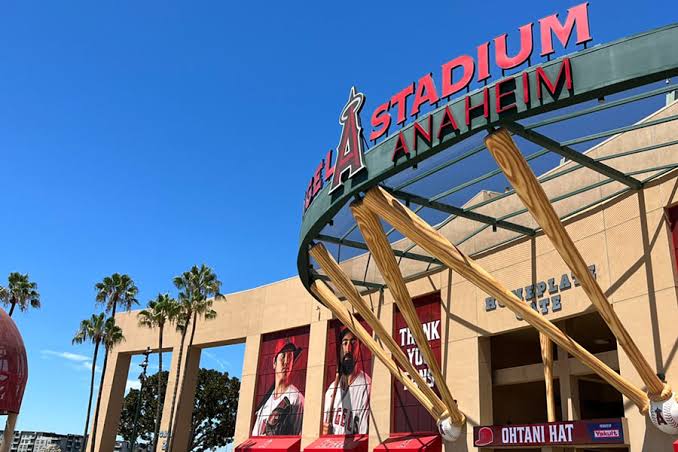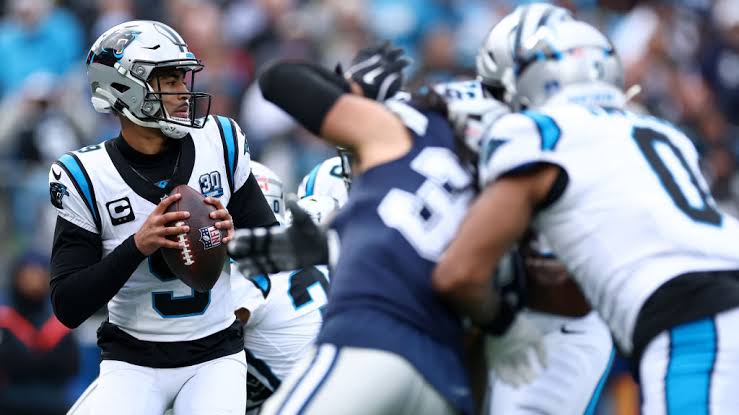The Kirk Cousins Effect: How One QB’s Decision Could Make or Break the…
At the end of the Minnesota Vikings’ season last January, Kirk Cousins was asked about a new contract and whether money or other contract terms were the biggest priority for him, and whether he’d take a hometown discount. He danced the questions a bit and said other non-dollar terms of a new contract would be important to him. But on the money part of a new contract Cousins made the point that another player had said to him years earlier: it’s not the money, but what that money represents. The implication being that with greater dollar amounts- and particularly guaranteed dollar amounts- comes a greater commitment from the organization to the player.
A few months and some level of tampering later, the Vikings and Cousins were not able to bridge their contract impasse of over a year. Both guaranteed money and length of a new contract offer from the Vikings were not what Cousins was looking for. What he was looking for was full market value with two years’ worth of guaranteed money and a contract length that would get him to retirement.
The Atlanta Falcons obliged, signing Cousins to a four-year, $180 million contract with $100 million guaranteed, enough to make the former fourth-round pick the sixth highest paid player in NFL history at the end of the 2024 season. Only Russell Wilson has made more money over his career in the same number or fewer seasons as Cousins.
Cousins later said that the Vikings were going to draft a top quarterback and were really only looking for another one-year deal.
Cousins Shocked
After Cousins signed with the Falcons, and his first press conference comments which led to a tampering investigation, loss of a 5th round pick, a $250,000 team fine and a $50,000 fine for Falcons’ GM Terry Fontenot, Cousins was to discover that greater dollar amounts don’t necessarily come with a greater commitment from the organization.
Just before the Falcons’ first-round pick was announced, Cousins was informed that the team would be drafting a quarterback with their first pick- Michael Penix Jr. Cousins was reportedly shocked by the decision, which caught him completely by surprise.
It turned out that the Falcons weren’t any more committed to Cousins than the Vikings were. The Vikings were just more upfront about it.

The Vikings Move On
By the time the 2024 NFL Combine was coming to an end in February, Kevin O’Connell gave an interview during which in tone if not entirely in substance, he seemed to acknowledge that the Vikings were not going to extend Kirk Cousins. He talked about tampering going on during the Combine, which is always active behind the scenes with agents and other interested parties gauging interest and talking contract terms for all those deals that are negotiated and agreed upon within minutes of the “legal” tampering period and start of free agency in mid-March.
The Vikings were busy during this period too, announcing a $10 million deal for Sam Darnold the day after the Falcons announced their deal with Cousins. The Vikings were intent on signing Darnold, as they had to outbid the Broncos for his services.
The Vikings went on to draft a top quarterback, as they told both Cousins and Darnold they would, in J.J. McCarthy. O’Connell remained clear that Darnold would be their starting quarterback week one throughout the off-season and training camp. He was on the verge of beginning to give McCarthy some first-team reps in practice when he went on IR with a torn meniscus, making Darnold the unchallenged starter for the season.
Darnold has flourished, taking advantage of the situation in Minnesota that Cousins rejected, enjoying a career year by nearly every major metric and outperforming Cousins across the board as well.
A Disappointed Cousins Disappoints in Atlanta
Meanwhile Kirk Cousins has disappointed expectations in Atlanta. After the shock and disappointment with the Falcons drafting Michael Penix Jr., his performance this season has justified that decision.
Cousins leads the league in both fumbles and interceptions after 13 weeks, while showing a noticeable decline in his key passing metrics. He has just four games with a passer rating over 100 this season, and major metrics like passer rating, QBR, ANY/A, adjusted completion percentage, and PFF overall and passing grades all have declined noticeably.
The issue from what I can see having watched a couple of Cousins’ games this season, including his last one against the Chargers, is that he’s beginning to lose his fastball. He hasn’t lost it completely, but you can see that nearly every throw requires more effort. Without more of a concentrated effort, Cousins’ passes look to have a less velocity than they used to, some of his longer throws fall short, and some of his throws on out routes are dangerously slow getting there. His interception on an out route against the Chargers was not only a bad decision- the defensive back was in perfect position to pick it off even if it was an otherwise good throw- but it also lacked anywhere near the velocity needed.
Vikings GM Kwesi Adofo-Mensah has talked tangentially about age in press conferences about extending Cousins and Danielle Hunter, saying effectively while both are in great shape, etc., it’s difficult to gauge when age may catch up with a player. It hasn’t seemed to have caught up to Hunter yet, but even though Cousins has been exemplary in taking care of his body over the years, it looks to be catching up with him this season.
Sunday’s Matchup and the Future
After last weekend’s loss to the Chargers in which Cousins threw four interceptions, the Falcons third straight loss, there have been rumblings about starting Michael Penix Jr. The Falcons have gone from 6-3 with a commanding lead in the weak NFC South division to 6-6 and in a battle with the Bucs to win the division and make the postseason. Cousins’ average passer rating over those three losses has been 61.3.
My guess is that if Cousins has another bad outing against the Vikings, there is a chance he gets benched in favor of Penix as the Falcons try to salvage their playoff hopes and move forward with their QBOTF. The Falcons offense is a lot of handing off to Bijan Robinson and a short play-action passing game off of that, with occasional deeper shots down the field- not super demanding of a rookie quarterback.
And if Cousins gets benched, the Falcons would seem likely to take the big dead cap hit and cut Cousins loose next year. And if that were to happen, it’s unclear if Cousins would look to sign with another team (presumably for a lot less money) or hang it up. My guess is the latter. So, there is a non-zero chance that Sunday’s game at US Bank stadium could be Cousins’ last.
For the Vikings, things worked out for the best. They moved on from Cousins and got better performance from Darnold for $33.5 million if you count Cousins’ dead cap hit and a $5 million dead cap hit for Darnold’s void year in 2025, making it $38.5 million total. That’s still a bargain for a veteran quarterback performance like Darnold’s this season. They also freed up enough cap space in the future, including moving on from Danielle Hunter, to afford signing Jonathan Greenard, Andrew Van Ginkel, Blake Cashman, Aaron Jones, and Stephon Gilmore this season, and likely other higher-priced free agents next year too.
How far the Vikings go in the playoffs remains to be seen, but if the Vikings had managed to strike a deal with Cousins for another year, it would’ve likely been a disappointing one given how Cousins has performed this season with the Falcons. The Vikings would probably be on the bubble for one of the last wild card spots and an early exit from the playoffs if they made it to the postseason. And their salary cap situation next year would not have been as favorable either.






